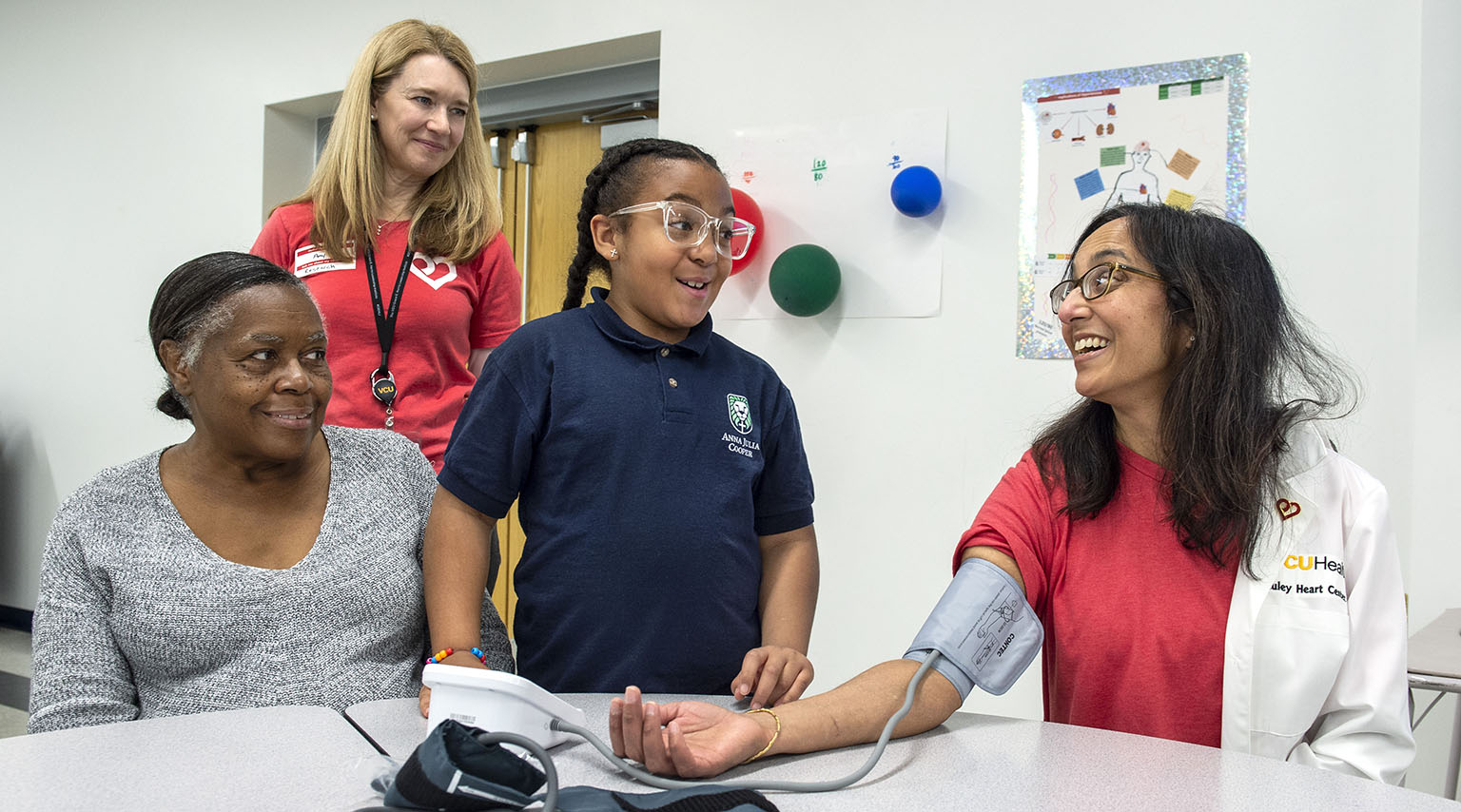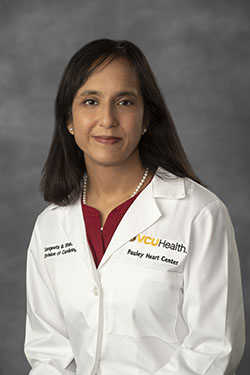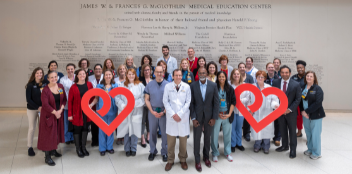Hypertension change agents
Students to become the teachers in blood pressure pilot program called Teach BP

Janice Price (far left) looks on while her granddaughter Janiyah Price takes a blood pressure reading of Dr. Sangeeta Shah at a Teach BP event at Anna Julia Cooper School in Richmond. Also pictured is Amy Ladd, Ph.D., assistant director of Pauley Heart Center.
A Pauley pilot program expected to launch this year in Richmond area schools will target multigenerational populations to learn about hypertension and associated health risks. Called Teach BP, the program will educate fourth- and fifth-graders about blood pressure and prepare them to share what they’ve learned with family members.

Like the Scouts, the students selected for Teach BP will learn why blood pressure is important, how to take blood pressure readings and what those readings mean. They will learn that high blood pressure is a “silent killer” that can affect your brain, heart, eyes and kidneys, causing heart attack, stroke and kidney failure, even blindness. Armed with that knowledge, the students will be encouraged to model and influence behaviors with a goal of showing family members that hypertension can be prevented and doesn’t have to be an inevitable health condition.
Teach BP is a priority project for Pauley. In 2019, more than half a million deaths in the United States had hypertension as a primary contributing cause of death. And for adults living with hypertension, only about 1 in 4 have it under control. Additionally, high blood pressure is more prevalent in Black and brown adults than whites. In Richmond — a city of about 40% Black residents — research shows “an epidemic of hypertension” and dramatic differences in life expectancies from neighborhood to neighborhood.
“Heart disease and hypertension are prevalent in these high-risk areas. We know treatment includes education awareness, medication adherence and lifestyle changes. But how can we make that human connection with the adults in these communities to take action? That’s how Teach BP came about,” said Carrie Mills, Pauley’s senior director of development.
Teach BP will consist of four hour-long, hands-on instructional sessions aided by students from the VCU schools of pharmacy and medicine. The program will culminate in a family night, at which time the participants will showcase their creative, blood pressure-related projects, and family members will have an opportunity to get blood pressure screenings.
Teach BP also includes an important research aspect, said Amy Ladd, Ph.D., assistant director of Pauley Heart Center. “This is the first educational program where we’re going out into the communities to teach young students about hypertension. By researching the impact this may have, in the form of increased awareness and knowledge of hypertension, in not only the students but also their adult caregivers, we can see if this educational model is effective. If we can prove it is effective, we can use the data to raise additional funding to expand the program to reach more communities.”
Back to Spring-2022
Join our Pauley Consortium composed of patients, friends and advocates.

